Le nouvel album d’Alasdair Roberts, Pangs devrait augmenter la cote de popularité de son auteur. Ses nouvelles chansons fleurent bon l’Écosse et sont un merveilleux point d’ancrage pour les fans de pop indé. Il fallait donc rencontrer ce garçon rapidement. C’est chose faite.
Táin Bó Cuailnge
Pourquoi as-tu appelé ce disque Pangs ?
Alasdair Roberts : Dans l’ancien texte mythologique irlandais Táin Bó Cuailnge, il y a une référence à Noinden Ulad qui est souvent traduit par The Pangs of Ulster. Il y a un certain débat sur ce que cela signifie précisément, mais de nombreux scientifiques pensent qu’il s’agit d’une référence à la pratique de la couvade, coutume de naissance où, quand un enfant naît, l’homme expérimente le rituel du «travail». Dans certaines cultures, les hommes se rendent dans leurs lits, subissent des périodes de jeûne et de purification et observent certains tabous.
Alasdair Roberts – Pangs
Je suppose que pour diverses raisons (par des connaissance ou par mon entourage par exemple), j’ai envisagé la naissance comme un phénomène qui peut expliquer en partie l’impossibilité de la comprendre pleinement en homme. Je m’efforce d’explorer la totalité de ma vie dans mon travail artistique. Cela peut donner la chanson The Way Unfavoured présente sur l’album Alasdair Roberts (Drag City, 2015) qui évoque la ligne « entre la tache de naissance et l’épreuve du lit de mort ». Comme nous avons enregistré l’album dans la région de l’Ulster, dans un grand studio analogique avec l’ingénieure Julie McLarnon, il me semblait normal d’avoir un titre d’album qui a faisait référence à ce territoire en quelque sorte !
Comment as-tu appris à chanter ?
Aladsair Roberts : J’ai des doutes à propos de ça. Merci de ne pas m’en tenir rigueur. J’ai commencé à chanter quand j’étais petit, d’abord avec un clavier Casio des années 80, puis avec une guitare, un banjo, un dulcimer… Le développement de ma voix fut très progressif et ce ne fut pas facile. J’ai probablement commencé à être raisonnablement heureux avec les vocalises que j’ai générées quand j’ai eu vingt ans. Mais bien sûr, il y a toujours place à l’amélioration – je suis toujours en train d’apprendre de nouvelles choses en ce qui concerne le chant. Comme mon ami Christopher Mack l’a récemment dit, avec une économie admirable: « l’apprentissage est sans fin ».
The Angry Laughing God
Quelle est l’histoire de The Angry Laughing God ?
Alasdair Roberts : J’étais en train de réfléchir à la notion de malthusianisme – que je ne cautionne certainement pas, je ne l’approuve pas surtout tout ce qui concerne la notion de « contrôles » pour maintenir les populations à des niveaux convenables. Malthus a énuméré les « contrôles préventifs » tels que l’abstinence et le mariage retardé ainsi que les «contrôles positifs» (qui ne semblent pas particulièrement positifs) tels que la maladie, la famine et la guerre. Ainsi, la chanson The Angry Laughing God est, à un niveau, une sorte de fantaisie autour de ces idées lors de ces époques folles, à la fois universelle et personnelle – mais elle peut également être appréciée comme une simple chanson rock qui ne fait pas beaucoup réfléchir.
Tu peux m’en dire plus sur la pochette de ton album ?
Alasdair Roberts : Je suis allé voir une exposition de photographies chez The Lighthouse ici à Glasgow. C’était une série de John Maher (qui vit sur l’île de Harris). Beaucoup de maisons et de propriétés sont abandonnées sur les îles Hébrydes extérieures. La photographie de la pochette de mon album en fait partie. J’ai envoyé un mail à John et il m’a autorisé à utiliser son cliché pour ma pochette. Dan Osborn de Drag City a fait plusieurs essais. Celui que nous avons conservé est le plus efficace.
Vas-tu venir faire quelques concerts en France cette année ?
Alasdair Roberts : J’aimerais jouer en France. Cela arrivera peut-être, si ce n’est pas en 2017, ce sera peut-être en 2018. En début d’année, j’ai invité un groupe français, Tartine de Clous, à jouer à Glasgow. C’était un joli trio qui chante des chansons françaises traditionnelles. J’ai collaboré avec Neil McDermott de ce groupe lors d’un concert au Café Glad. Peut-être quelque chose est en train de se préparer avec eux mais je ne peux rien promettre.
Pangs d’Alasdair Roberts sera disponible le 24 février 2017 via Drag City / Modulor.
- Pangs
- No Dawn Song
- An Altar in the Glade
- The Breach
- The Angry Laughing God
- Wormwood and Gall
- The Downward Road
- Scarce of Fishing
- Vespers Chime
- Song of the Marvels
English text
What’s the reason behind the choice of the title ‘Pangs’ for this album ?
In the ancient Irish mythological text Táin Bó Cuailnge (‘The Cattle Raid of Cooley’) there’s a reference to something called ‘Noinden Ulad’, which is often translated as ‘The Pangs of Ulster’. There’s some debate about what this means precisely, but many scholars think that it’s a reference to the practice of couvade, which is a birth custom in which, when a child is born, the man experiences the ritual of ‘labour’. In some cultures, men would take to their beds, undergo periods of fasting and purification and observe certain taboos.
I suppose for various reasons (for example, through people I’d come to know and those around me who were experiencing pregnancy and so on) I’d been thinking about birth as a phenomenon, perhaps partly about the impossibility of fully comprehending it as a male person. Also just thinking about its place in the totality of life which my work as an artist is often striving to explore – see the line ‘between the birthmark and the deathbed bruise’ on the song ‘The Way Unfavoured’ from the Drag City album Alasdair Roberts. Also, because we recorded the album in Ulster, at the great Analogue Catalogue studio with Julie McLarnon engineering, it seemed to make sense to have an album title which referenced that territory somehow!
How did you learn to sing ?
There are some who doubt that I can, so thank you for not being one of them. I’ve sung ever since I was a small child, firstly along with an eighties Casio keyboard, later with a guitar, a banjo, a dulcimer… it’s been a very gradual process of developing a voice and it’s probably not come as easily to me as some others. I probably started to become reasonably happy with the vocal sounds I generated when I was in my early twenties or so. But of course there is always room for improvement – I am still always learning new things about singing, and will be doing so until the very end. As my good friend Christopher Mack put it recently, with admirable economy: ‘learning’s unending.’
What’s the story of the song ‘The Angry Laughing God’?
I was kind of musing on the concept of Malthusianism – which I certainly don’t espouse or agree with, I should add – and particularly about the notion of there being ‘checks’ to keep populations at sustainable levels. Put very crudely, Malthus listed ‘preventive checks’ such as abstinence and delayed marriage as well as ‘positive checks’ (which don’t sound particularly postiive) such as disease, starvation and war. So the song ‘The Angry Laughing God’ is, on one level, a kind of flight of fancy around these ideas, in these crazy times, on both universal and personal levels – but it can also be enjoyed as just a brainless rock song.
How did you choose the picture cover of your new album ?
I went to see a photography exhibition at a place called The Lighthouse here in Glasgow – it was a series of photos by John Maher (who lives on the isle of Harris), mostly of abandoned houses and homesteads in the Outer Hebrides. I was taken by two or three of the photos in particular, including the one which ended up on the front cover, so I sent an email to John and he kindly allowed the use of his work on the record sleeve. Dan Osborn at Drag City tried a few cover designs with a few other photos by John, and it was decided that the one which we finally used was the most effective.
Will you play some shows in France this year ?
I would love to play some shows in France. Perhaps it will happen – if not in 2017, then maybe 2018. Earlier this year I invited a French group, Tartine de Clous, to Glasgow. They’re a great singing trio who sing a lot of traditional French songs. Along with the fiddler Neil McDermott I collaborated with Tartine de Clous in a concert at a venue here called the Glad Cafe. Perhaps some live action in France along with that group is on the cards, but I can’t promise anything.

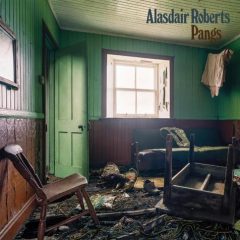

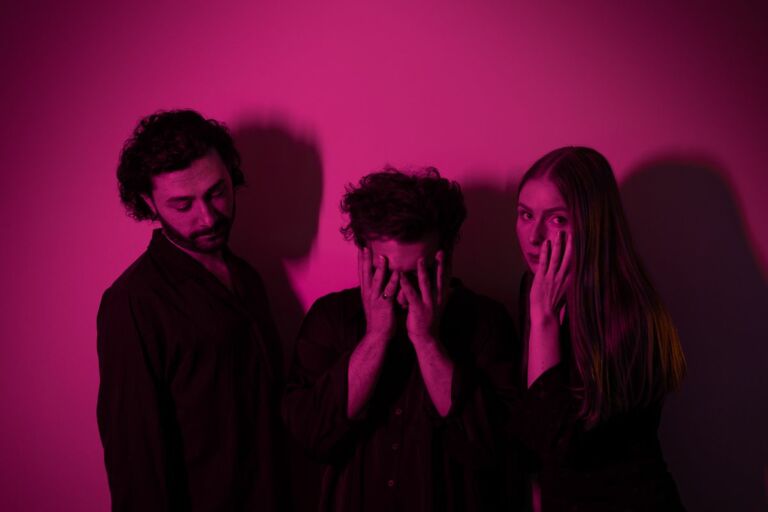
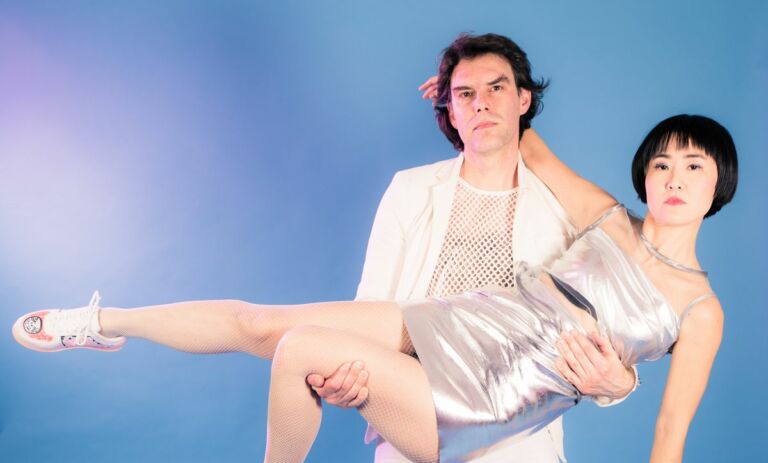
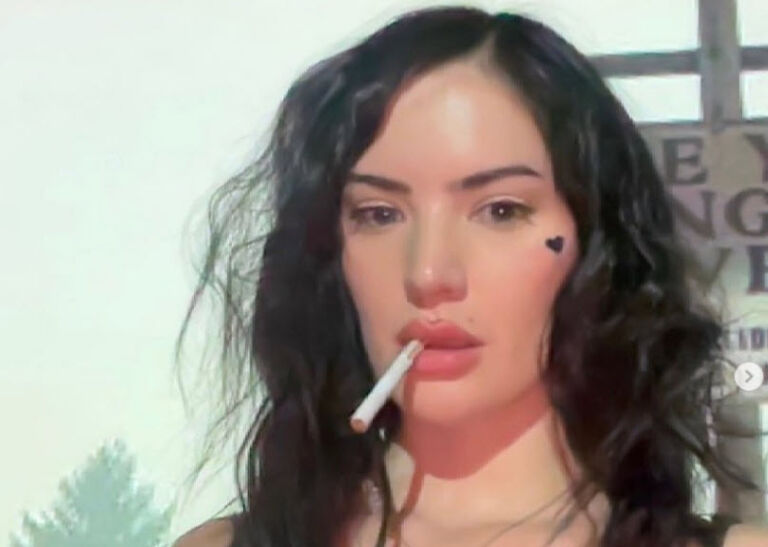
 Seafoam Green ne se met pas au vert
Seafoam Green ne se met pas au vert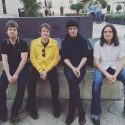 L’été indien des The Wellgreen
L’été indien des The Wellgreen